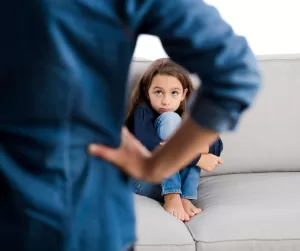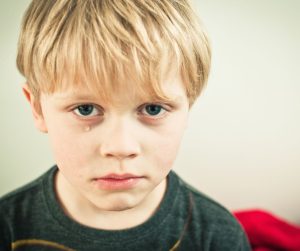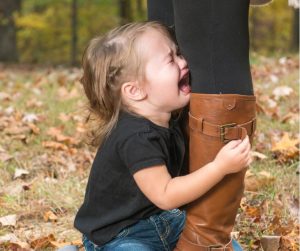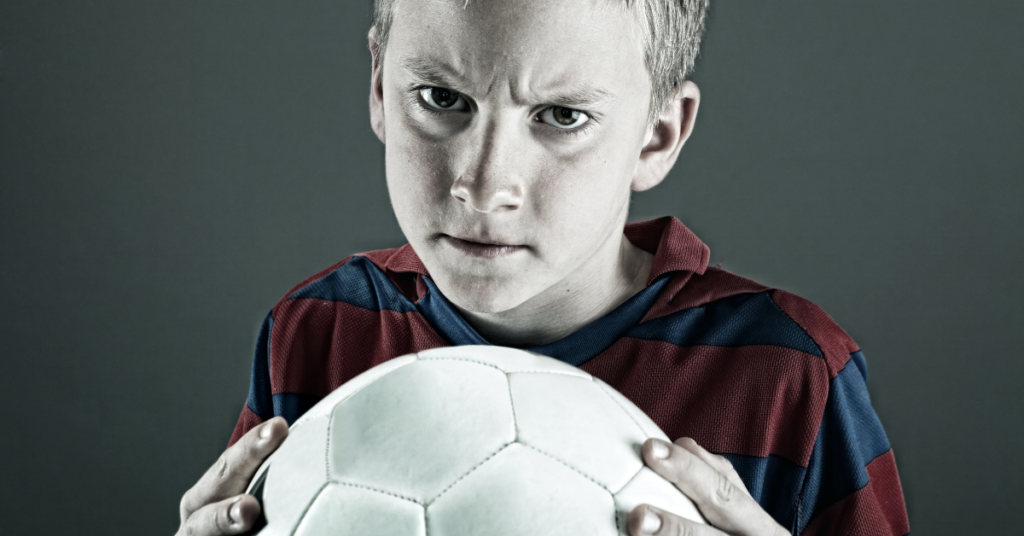
When parents direct their kids and tell them what they should do to improve themselves, it lands on the child as I’m not okay the way I am, instead of empathy in action.
Q. “How can I help my 8 year old son understand that I love him just the way he is AND I want him to grow, learn and improve? He says he feels humiliated and ashamed every time I ask him to learn something new because he feels like I’m saying he needs to be better than he already is.”
A. How wonderful that your son can tell you how your requests feel to him. So many kids just cram their feelings inside, and so many parents dismiss and deny their remarks with comments like, “That’s not true. I love you just the way you are. I just want you to learn to do new things.”
That sounds logical—to the mind of an adult. But an eight year old doesn’t read it that way.
The hard part for the parent is to listen and learn from the Read more…








 The family is a nurturing ground, not a training ground. When I hear parents say, “My job is to prepare him to deal with the real world. People out there aren’t going to care how he feels about what he has to do,” I hear a justification for traditional, authoritarian parenting, and I want to counter it to expose the moving parts.
The family is a nurturing ground, not a training ground. When I hear parents say, “My job is to prepare him to deal with the real world. People out there aren’t going to care how he feels about what he has to do,” I hear a justification for traditional, authoritarian parenting, and I want to counter it to expose the moving parts.
 Story: My strong willed 8 year old was diagnosed with anxiety and displays this with anger. Last March I got diagnosed with cancer and needed surgery. His anxiety hit the moon. He’s been acting out by throwing a ball at kids, stepping on their feet, throwing sand, yelling, etc. I practiced your principles of empathy, and he was able to tell me about a kid teasing him for not climbing the rock wall. I would never have found this out had I not set aside his behavior and my problem, used compassion and empathy, and listened. Yesterday when I picked him up, he came running into my arms and cried and cried really, really hard. WOW! He hasn’t cried like that in years. He cried the whole way home and continued at home and let me just sit there with him. I used empathy when needed and let him say all these horrible things about a kid who’s been bullying him. Bingo, I got to the root of his behavior, went right past those weeds. I did my best to
Story: My strong willed 8 year old was diagnosed with anxiety and displays this with anger. Last March I got diagnosed with cancer and needed surgery. His anxiety hit the moon. He’s been acting out by throwing a ball at kids, stepping on their feet, throwing sand, yelling, etc. I practiced your principles of empathy, and he was able to tell me about a kid teasing him for not climbing the rock wall. I would never have found this out had I not set aside his behavior and my problem, used compassion and empathy, and listened. Yesterday when I picked him up, he came running into my arms and cried and cried really, really hard. WOW! He hasn’t cried like that in years. He cried the whole way home and continued at home and let me just sit there with him. I used empathy when needed and let him say all these horrible things about a kid who’s been bullying him. Bingo, I got to the root of his behavior, went right past those weeds. I did my best to  Q. My son is 11 and an only child. His first reaction to everything is negative, a sigh, makes a face and moans. This is the reaction to every meal (even stuff he likes), an outing he likes or even just being asked to watch tv with us. When we try to do fun family stuff he moans. Nearly every time he enjoys the activity and tells us afterwards, when we ask, that he loved it. He just wants to be playing on his iPad or watching TV on his own in his room. He says these activities take time from his gaming. I get frustrated because I plan these family activities around what he likes to do and yet he moans about going. Then it causes a row because no matter what we do he never gets excited or happy.
Q. My son is 11 and an only child. His first reaction to everything is negative, a sigh, makes a face and moans. This is the reaction to every meal (even stuff he likes), an outing he likes or even just being asked to watch tv with us. When we try to do fun family stuff he moans. Nearly every time he enjoys the activity and tells us afterwards, when we ask, that he loved it. He just wants to be playing on his iPad or watching TV on his own in his room. He says these activities take time from his gaming. I get frustrated because I plan these family activities around what he likes to do and yet he moans about going. Then it causes a row because no matter what we do he never gets excited or happy. Tis the season—for stress, impatience and probably some unrealistic expectations and resentment over why your family isn’t like the happy ones you see on Instagram. That means trickle down stress for your children, no matter what age. Your littlest ones may show it in irregular sleep, eating, toileting and generally cranky behavior. Your middle ones may show it in angry outbursts and words that push anyone’s buttons. And your teens may simply disappear to their rooms to get away from it all.
Tis the season—for stress, impatience and probably some unrealistic expectations and resentment over why your family isn’t like the happy ones you see on Instagram. That means trickle down stress for your children, no matter what age. Your littlest ones may show it in irregular sleep, eating, toileting and generally cranky behavior. Your middle ones may show it in angry outbursts and words that push anyone’s buttons. And your teens may simply disappear to their rooms to get away from it all.  Q. We have a 4-year-old turning 5 next month, and we have a lot of toilet talk going on. We’ve tried ignoring it, explaining why it’s not okay and that it’s not okay to use in our house. Nothing seems to work. He just lays around and says: penis, boobies,
Q. We have a 4-year-old turning 5 next month, and we have a lot of toilet talk going on. We’ve tried ignoring it, explaining why it’s not okay and that it’s not okay to use in our house. Nothing seems to work. He just lays around and says: penis, boobies,  After the shooting at Sandy Hook Elementary, I wrote an article called Look for the Helpers inspired by Fred Rogers. I am redoing it with the same basic
After the shooting at Sandy Hook Elementary, I wrote an article called Look for the Helpers inspired by Fred Rogers. I am redoing it with the same basic As I sit blissfully holding my infant grandson, I am struck by his fragility and vulnerability. He is dependent on us, his caregivers. And we in turn look to every possible behavioral sign to determine what needs caring for. Is he hungry, tired, does he have an internal pain, does he need a burp, a suck, a bounce, a diaper change? We rotate through the possibilities hoping to land on the right one, thrilled when we do, worried when we don’t.
As I sit blissfully holding my infant grandson, I am struck by his fragility and vulnerability. He is dependent on us, his caregivers. And we in turn look to every possible behavioral sign to determine what needs caring for. Is he hungry, tired, does he have an internal pain, does he need a burp, a suck, a bounce, a diaper change? We rotate through the possibilities hoping to land on the right one, thrilled when we do, worried when we don’t.  Q. I have a very strong-willed, acting out 8-year-old boy. I only recently read and started implementing your 8 principles book and watched your YouTube videos and am trying to implement your “connective parenting” approach which has already been very helpful. But I have struggled with this for so long, and I have a hard time handling friends, family, anyone in public not getting what I am doing. I get lookers, judgments, and even comments of how “bad” he is. They tell me how he needs a smack or more punishment, that he’s disrespectful, etc. I am trying to find confidence in my parenting, but this is a real brick wall. Do you smile politely and say, “My son is having a hard time”? Do you tell them to mind their own business and that you are working on it! Do you just ignore them? It makes me want to wear a t-shirt that states, “I am doing the best I can and so is my son”.
Q. I have a very strong-willed, acting out 8-year-old boy. I only recently read and started implementing your 8 principles book and watched your YouTube videos and am trying to implement your “connective parenting” approach which has already been very helpful. But I have struggled with this for so long, and I have a hard time handling friends, family, anyone in public not getting what I am doing. I get lookers, judgments, and even comments of how “bad” he is. They tell me how he needs a smack or more punishment, that he’s disrespectful, etc. I am trying to find confidence in my parenting, but this is a real brick wall. Do you smile politely and say, “My son is having a hard time”? Do you tell them to mind their own business and that you are working on it! Do you just ignore them? It makes me want to wear a t-shirt that states, “I am doing the best I can and so is my son”.